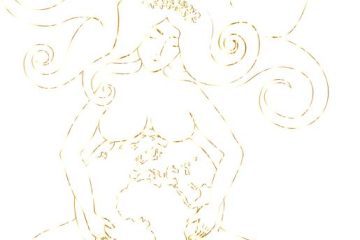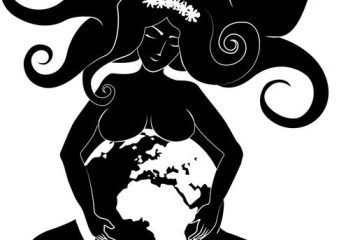In the vast tapestry of ecological thought, one theory emerges as a whisper of interconnectedness – the Gaia hypothesis. Like a delicate dance between Earth and life forms, Gaia theory proposes a symbiotic relationship where our planet itself is seen as a living organism. Let’s delve into the depths of this captivating hypothesis, exploring its origins, implications, and the profound concept of Earth as a self-regulating system. Join us on a journey of discovery as we unravel the intriguing essence of the Gaia hypothesis.
Table of Contents
- Exploring the Gaia Hypothesis Essence: Nature as a Self-regulating System
- Interconnectedness and Balance: Understanding Gaia’s Relationship with Earth
- Becoming Gaia Conscious: Practical Steps to Embrace Gaia’s Wisdom
- Harmonizing with Gaia: Cultivating Sustainable Practices for a Thriving Future
- Q&A
- Closing Remarks

Exploring the Gaia Hypothesis Essence: Nature as a Self-regulating System
Embark on a journey into the intriguing concept of the Gaia Hypothesis, which proposes that nature functions as a self-regulating system, maintaining the conditions necessary for life to thrive on Earth. Imagine the planet as a living organism, where all components interact harmoniously to achieve balance and sustainability.
Delve into the essence of this hypothesis, where Earth is viewed as a single, interconnected entity capable of self-regulation and adaptation. Explore how different elements of the environment collaborate to maintain optimal conditions, highlighting the intricate web of relationships that define the dynamic equilibrium of our planet.
Interconnectedness and Balance: Understanding Gaia’s Relationship with Earth
The interconnectedness and balance between Gaia and Earth are deeply rooted in the essence of nature itself. Gaia’s relationship with Earth goes beyond mere existence; it embodies a symbiotic connection where each element influences and depends on the other. This intricate web of interactions highlights the profound harmony between Gaia, representing the Earth as a whole living organism, and the diverse ecosystems that thrive within it.
Key Points:
- Gaia theory suggests that Earth is a self-regulating system capable of maintaining environmental balance.
- The concept emphasizes the interdependence of all life forms and natural processes.
- Understanding Gaia’s relationship with Earth fosters a deeper appreciation for the intricate workings of our planet.
Exploring Gaia’s Connection:
Delving into Gaia’s connection with Earth unveils a tapestry of ecological relationships that sustain life as we know it. From the delicate balance of ecosystems to the intricate cycles of energy flow, Gaia’s presence resonates in every aspect of the natural world. Embracing this holistic perspective invites us to acknowledge and honor the interconnectedness that we share with Gaia, inspiring a sense of unity and responsibility towards nurturing and preserving our planet for generations to come.
Becoming Gaia Conscious: Practical Steps to Embrace Gaia’s Wisdom
Whether you’re a nature enthusiast, an environmental activist, or simply someone curious about embracing a deeper connection with the Earth, delving into the Gaia hypothesis can offer profound insights and inspire meaningful actions. Embracing Gaia’s wisdom involves acknowledging the interconnectedness of all living beings and recognizing the Earth as a self-regulating system that sustains life.
Practical steps to become more Gaia conscious include:
- Connecting with Nature: Spend time outdoors, observe the natural world, and feel a sense of unity with all living things.
- Practicing Sustainable Living: Reduce your carbon footprint, recycle, use eco-friendly products, and support environmentally conscious initiatives.
- Cultivating Gratitude: Express gratitude for the Earth’s gifts, from clean air and water to biodiversity, and strive to protect and preserve them.

Harmonizing with Gaia: Cultivating Sustainable Practices for a Thriving Future
Embracing the essence of the Gaia hypothesis involves intertwining our lifestyles with the rhythms of nature, fostering a harmonious relationship where sustainability and prosperity coexist. By recognizing the interconnectedness of all living beings and the planet we call home, we pave the way for a brighter future filled with abundance and vitality.
<p>Engaging in sustainable practices is not merely a choice but a responsibility we bear to ensure the well-being of future generations. From cultivating organic gardens to supporting local ecosystems, each action taken in alignment with Gaia's wisdom contributes to the restoration and preservation of our shared Earth. Let us walk gently upon this precious land, treading with mindfulness and reverence for all its inhabitants, both seen and unseen.</p>Q&A
**Q&A: Unveiling the Intriguing Gaia Hypothesis**
Q: What is the Gaia Hypothesis?
A: The Gaia Hypothesis proposes that the Earth is a self-regulating living organism, where the biota and the physical environment are closely interconnected to maintain conditions suitable for life.
Q: Who developed the Gaia Hypothesis?
A: The Gaia Hypothesis was formulated by scientist James Lovelock and microbiologist Lynn Margulis in the 1970s, suggesting that the Earth functions as a single, self-regulating system.
Q: How does the Gaia Hypothesis relate to environmental science?
A: The Gaia Hypothesis emphasizes the symbiotic relationship between living organisms and the Earth’s elements, highlighting the importance of preserving ecological balance and biodiversity for the planet’s well-being.
Q: Are there criticisms of the Gaia Hypothesis?
A: While some scientists praise the Gaia Hypothesis for its holistic view of Earth, others question its anthropomorphic representation of the planet and the extent of Gaia’s self-regulating capabilities.
Q: How can individuals contribute to Gaia Theory principles in daily life?
A: By adopting sustainable practices, minimizing ecological footprint, supporting conservation efforts, and promoting environmental awareness, individuals can align themselves with the principles of the Gaia Hypothesis to foster a healthier planet for future generations.
Embark on a journey of exploration and contemplation as we dive into the captivating realm of the Gaia Hypothesis, inviting reflection on our interconnectedness with the Earth and the profound implications of this intriguing concept.
Closing Remarks
As we conclude this exploration of the Gaia Hypothesis, it’s evident that our planet is a majestic, interconnected entity teeming with life and intricate balances. The notion that Earth operates as a single, self-regulating organism challenges us to reflect on our relationship with the environment and our responsibilities as stewards of this remarkable biosphere. By embracing the principles of harmony and interconnectedness put forth by the Gaia Hypothesis, we embark on a journey towards a deeper understanding of our place within the grand tapestry of nature. Let’s continue to marvel at the wonders of our living planet and strive to nurture and protect it for generations to come. Embrace the Gaia Hypothesis, for in its simplicity lies the complexity of life itself.



0 Comments